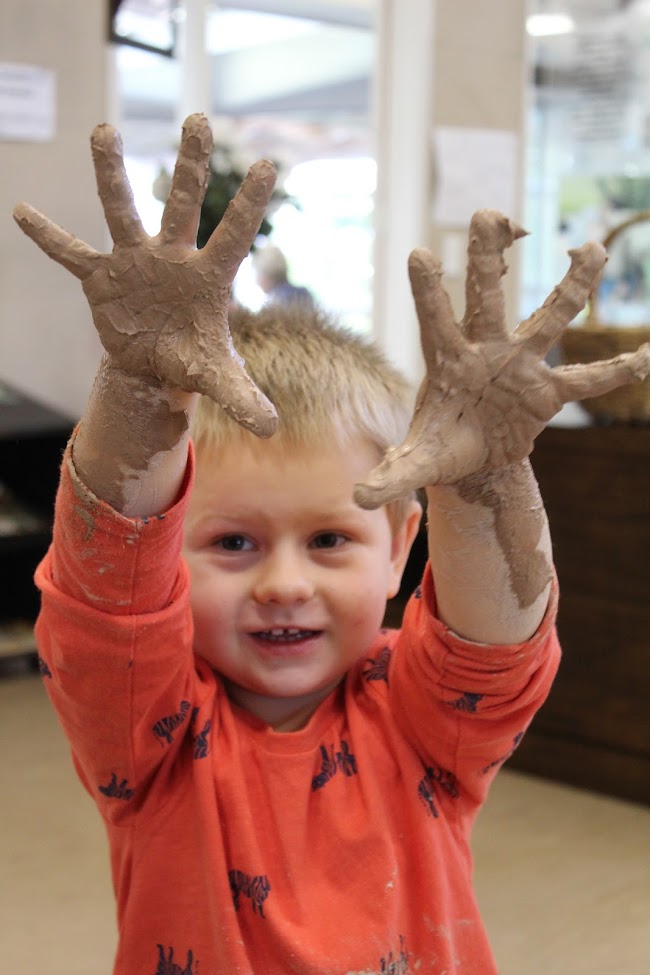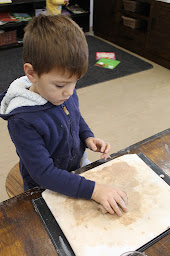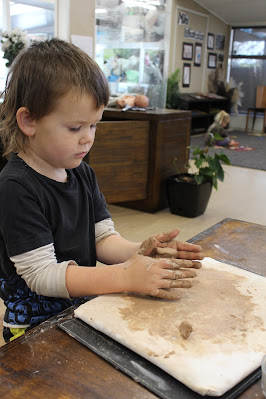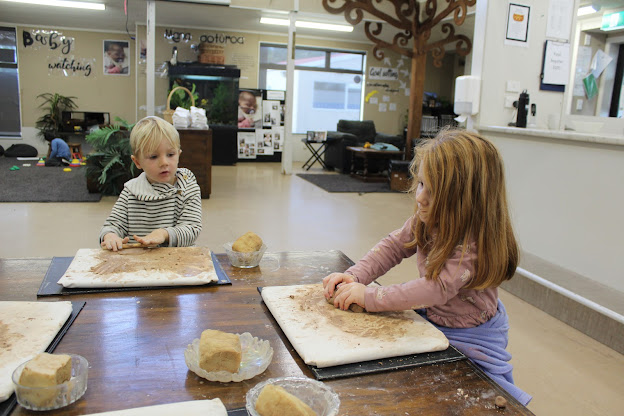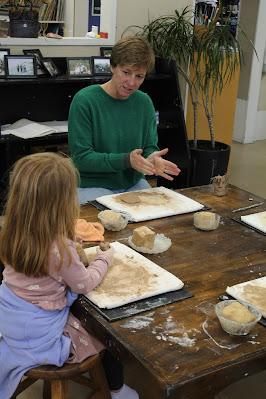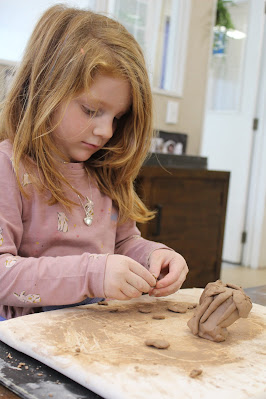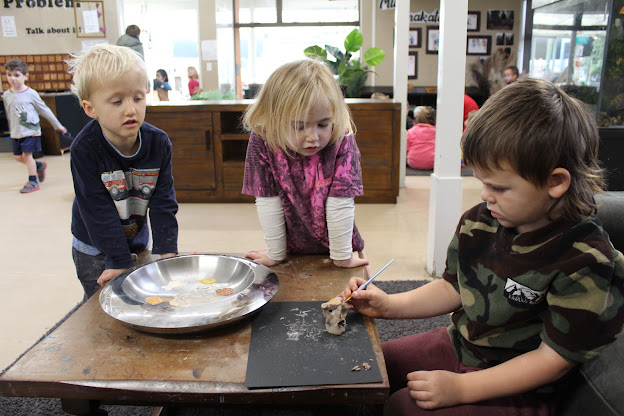Following the success of last week's foray into self portraits, this week we explored a variety of creative processes that extended children's knowledge and understanding of 3 dimensional art and how art tells a story.

Our inspiration for this
artistic story telling continued to be...
Our work with children followed the ideas and concepts of Ann Pelo as expressed in her book 'The Language of Art'. As a teacher this was an invaluable resource to draw ideas and inspiration from to feed the teaching and learning process.
3 dimensional art medium to explore.
Beginning steps in working with clay involves children
developing first hand knowledge and understanding of clay.
The allure of clay plonked in the middle of a large tarp was too irresistible for bare feet and wiggly fingers. We invited tamariki to dive in to explore clay
through whole body exploration.
Such fun!

Some children were exuberant participants from the get go...digging in, jumping off, stomping.
While others were more reserved and tentative in their exploration ...shy fingers, observing eyes, gentle touches.
As play progressed, the relationship between
clay and children grew.
Moves became bolder, physicality increased and understanding of how clay moves and changes shape developed with each unique touch.
What happens to clay when you stand on it,
stomp on it, lay down on it?
Children immersed in full body
play and exploration!
Making changes...rolling, flattening, folding...getting creative!
Funny fella! Love it!
Covering, stacking, blending, mixing...learning!
What happens when water meets clay?
"It gets softer" said Jena.
"It turns into slime" said Carter.
"It's sticky because I made sticky...water, I squeezed it in...push, push and the went in the clay. I squeezed my hands" said Pheonix.
"It's really slidey, slippery and slimy" said Minty.
"Mines sticky and slimy" said Carter.
"It's soft when you put water on it. It goes all slimy"
said Alessia.
"It's messy" said Tessa.

Exploration takes place outside too!


With time to play around with clay, children begin to develop an understanding of how to work the clay and their experiments turn to the creative process.
Teaching and learning focuses on developing skills and techniques for working with clay.
Wedging clay is important when children want to make things to keep. It is the process of removing air bubbles from the clay and takes a bit of practice for children to master.
When we offer children three dimensional media, we invite them into an expanded definition of art. Children learn that art is more than drawing and painting. Through three dimensional art, children have opportunities to add depth to their work by moving up, down and out, and to consider the way that lines and shapes take up space (Pelo, 2007).
When children wish to add pieces onto their clay work, they need to know about scoring the clay and adding slip.
Scoring - Adding scratch marks to the clay adds texture for clay to stick together.
Slip - Very soft clay that acts like a glue between scored clay.
These techniques combined together enable the artist to add to their clay sculptures.

Notice the eyelashes on the eyes...such attention to
detail is fabulous!
It was a full on busy week of learning at
Bream Bay Kindergarten.
When you look closely at the photos, it's easy to see learning in progress as tamariki explore clay using all of their senses.
Children learning through play!
Arohanui
Tania, Rowan, Sandy and Lauren































